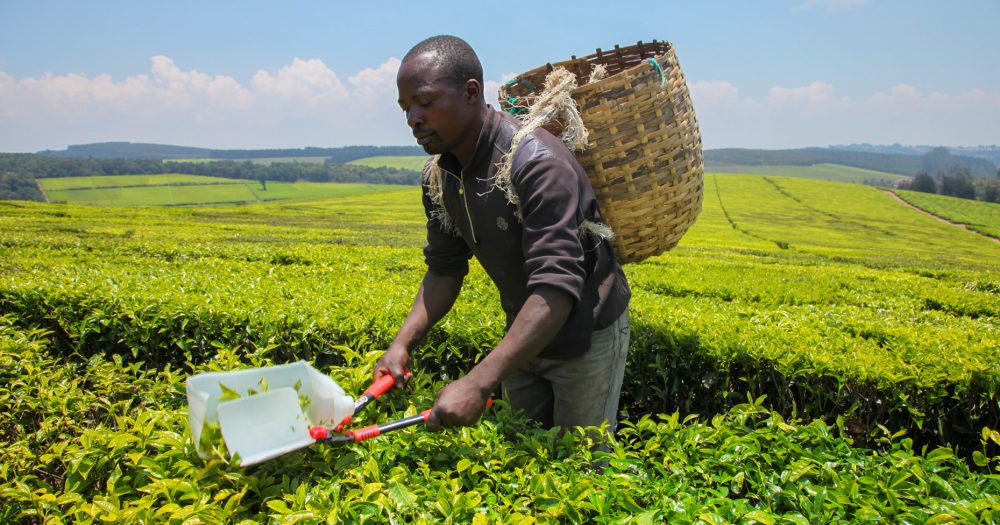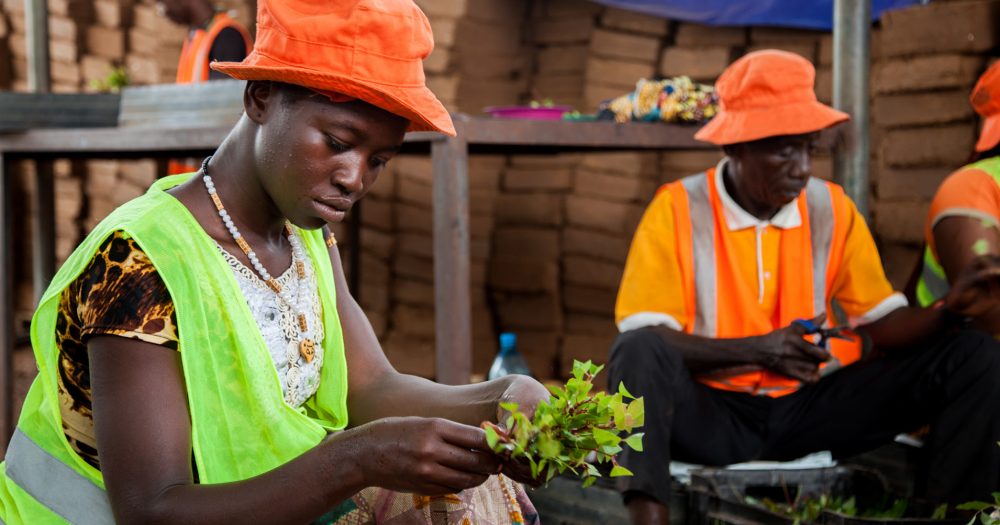This investment was made when British International Investment was named CDC Group.
Our investment
Description of the investment.
Description of the investment.
The trade finance risk sharing programme with Societe Generale enables CDC to support local businesses and importers across Africa by increasing access to trade credit, a need that is enhanced during COVID-19 with disruptions in supply chains and an increasing retrenchment of capital. The facility allows the bank to extend the limits for local banks, which in turn strengthens its ability to provide critical funding to local importers for essential inputs and commodities. In 2021 we made an increase to the programme.
Impact information
Applies to investments made from 2019 onwards. The tabs in this section define what we expect to achieve through the investment, assessing the potential impact of the investment against six dimensions of impact. You can find more details on our methodology of assessing impact here.
Applies to investments made from 2019 onwards. The tabs in this section define what we expect to achieve through the investment, assessing the potential impact of the investment against six dimensions of impact. You can find more details on our methodology of assessing impact here.
What?
| Impact |
|---|
Support economic opportunities and growth, contributing to an increase in jobs as large importers increase their distribution networks to deliver increased output. This will enable increased access to commodities for households at more competitive prices, improving and smoothing consumption (SDG 8.1, 9.1). |
|
|
How?
| How? |
|---|
|
Enabler: Providing a risk-sharing arrangement to target smaller and/or less recognised financial institutions in countries that have limited access to larger more reputable confirming banks or directly to international markets. Corresponding banks can extend higher trade credit to businesses, enabling greater trade flows to harder to reach geographies. This will allow businesses to import greater volumes of commodities such as gasoline, rice, sugar and wheat from outside Africa, and support business growth in these countries by contributing to an increase in production and output. |
Who?
| Stakeholder | Geography | Characteristics |
|---|---|---|
| Employers, consumers |
Pan-Africa. Impact will be variable based on demand. SocGen’s current exposure is over 50 per cent to ‘A’ & ‘B’ countries, which includes countries such as Nigeria, Cameroon, Mauritania, Ivory Coast, Burkina Faso, and Guinea. |
Given the variance of industries in which the businesses operate, for characteristics of people who ultimately benefit from the enabled trades, we assume mass market characteristics and demographics of the respective geographies. |
How much?
| Scale | Depth/Duration |
|---|---|
|
$120 million trade credit facility which we estimate to enable $400 million in additional trades. While it is difficult to model the number of stakeholders affected, we expect scale to be large because of the need for imports in the countries proposed in the pipeline. |
Depth is expected to be high, although visibility on the impact on underlying borrowers depends on the financial institution’s capacity to provide data on underlying borrowers. The countries in the trade book are dependent on commodity imports. For a sample of countries, energy products as a percentage of total merchandise imports range from 14 per cent to 30 per cent, with more developed countries such as Morocco (17 per cent) displaying a similar reliance on energy products imports as less developed countries such as Mauritania (18 per cent) and Cameroon (14 per cent). This indicates comparable economic dependence on energy products across, despite the developmental stage of a country. |
Contribution/additionality
| Contribution/additionality |
|---|
|
Grid score
| Grid Score
To help us direct our investments, we previously used a tool called the Development Impact Grid. It scored investments out of four, based on two factors: the difficulty of investing in a country and the propensity of the sector to generate employment. This tool was used for investments until the end of 2021. Since 2022 it has been replaced by the Impact Score. |
|---|
2.6(exposure will be adjusted on a rolling basis with use of facility) |
Risk
Execution Risk
Unexpected Impact Risk
Execution Risk
|
Reporting and Complaints Mechanism
The Reporting and Complaints Mechanism allows anyone outside BII to report alleged breaches of the business integrity or environmental and social provisions of BII’s Policy on Responsible Investing. This includes breaches made by BII, a BII investee, or a portfolio company of a fund in which BII has invested. The Reporting and Complaints Mechanism Rules are available here. Reports and complaints can be submitted by email to reportsandcomplaints@bii.co.uk or by mail. See more details on our Reporting and Complaints Mechanism here.
For any other general enquiries contact us at enquiries@bii.co.uk
-
Key facts
- Last updated
:
When the last quarterly update of the website database occurred.
- December 2024
- Project number
:
An identifier number shared by investments in the same project.
- D4044
- Status
:
The current status of the investment (green flag for active and red flag for exited).
- Active
- Region
:
The geographical region where the country is located. We currently invest in Africa, South Asia, South East Asia and the Caribbean. In 2023, BII’s investment mandate was extended allowing it to invest in regional funds linked to Ukraine, with the majority of activity expected to begin post-war. Investments outside these regions were made prior to 2012 under previous investment mandates.
- Rest of the World
- Country
:
The countries where the investment delivers impact. Where impact is delivered in multiple countries, this is indicated.
- France
- Sector
:
We prioritise those sectors that facilitate development and need our capital the most. Our priority sectors contribute towards many of the Sustainable Development Goals. They range from investing in the power infrastructure that will provide people with better access to electricity, to investing in financial institutions that direct capital to the individuals and businesses that need it the most.
- Financial services
- Sub sector
:
The sub-sector that the investment is made into; this provides a more granular level of detail than the ‘sector’ information
- Banks
- Investment type :
- Guarantee
- Start date :
- May 2020
- Amount :
- $50m
- Currency of investment :
- USD
- Domicile
:
The company or investment fund’s place of incorporation.
- France
We provide capital in the following ways: directly – through direct equity, direct debt, guarantees and other non-intermediated financial instruments; and indirectly – principally through investment funds.
For direct investments and fund investments, this is the date BII committed capital to the investments. This is typically the date on which legal agreements are signed by all parties.
For the portfolio companies of our fund investments, this is the date (either the month or the quarter) on which the fund committed capital to the portfolio company.
For direct equity investments, this is the date at which British International Investment exited the investment.
For debt investments, this is the date at which the final debt repayment was made.
For funds, this is the date at which the fund was terminated.
For underlying fund investments, this is the date at which the fund manager exited the investment.
The total amount committed, per financial instrument, per investment, on the date BII becomes subject to a binding legal obligation to provide funding or assume a contingent liability. This information is provided in US dollars.
For direct investments, this is the amount that BII has committed to the business or project. For fund investments, this is the amount BII has committed to the fund.
The currency in which the investment was made.
- Last updated
Related investments made by BII into this company:
| Investment name | Commitment | Region | Sector | Start date | Status |
|---|---|---|---|---|---|
| Investment 02 | $10m | Rest of the World | Financial services | December 2020 | Active |
| Investment 03 | $15m | Rest of the WorldRest of the World | Financial services | October 2021 | Active |


